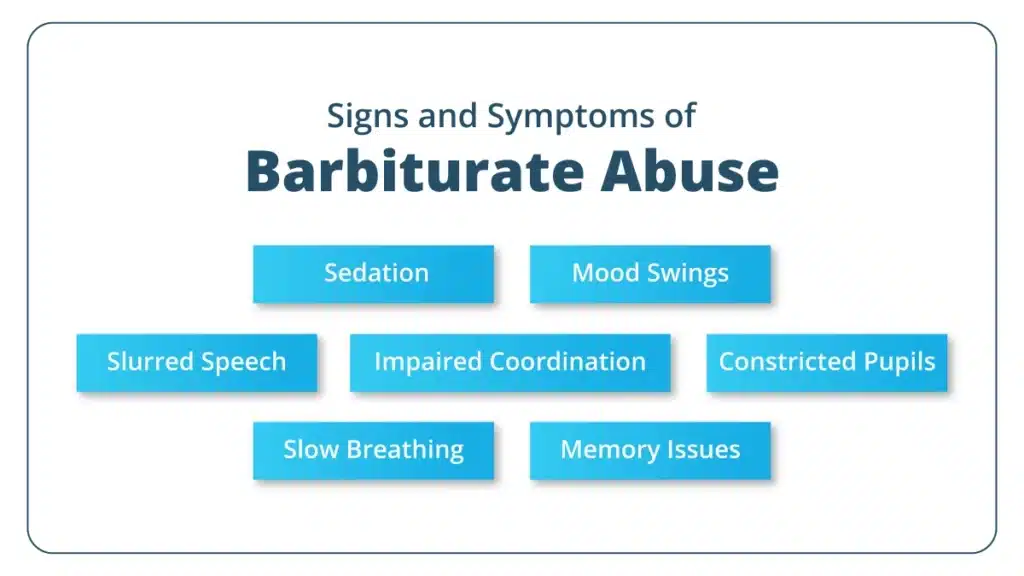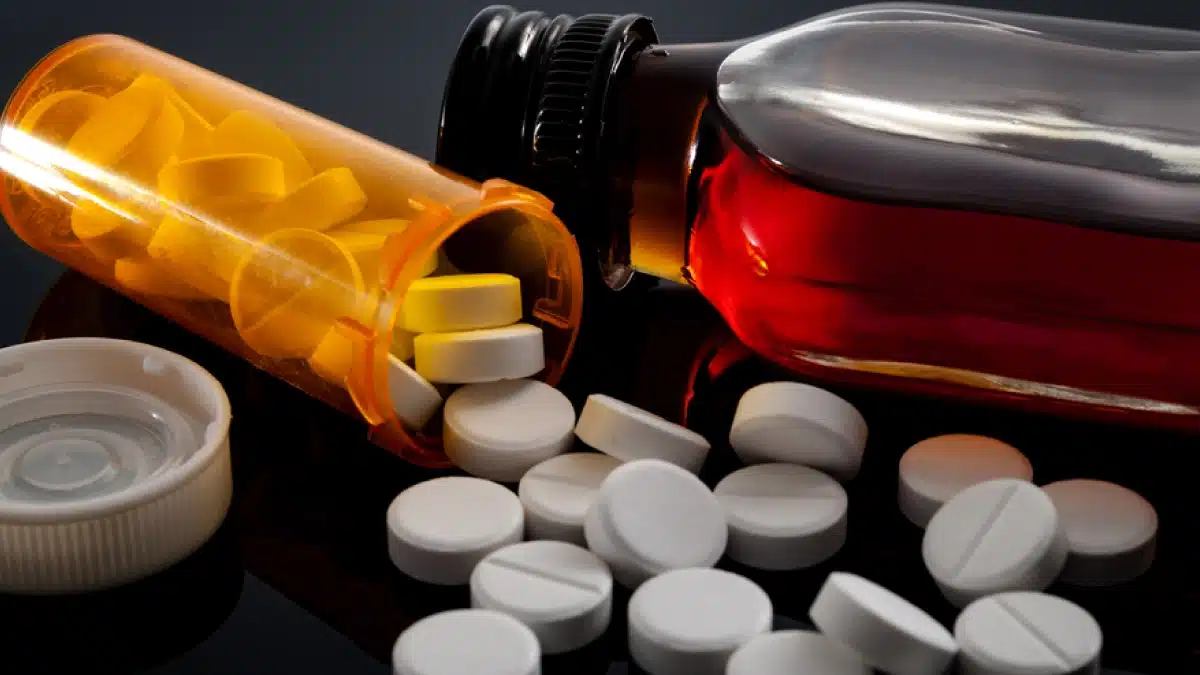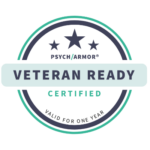Barbiturate addiction, a growing concern in the United States, stems from the misuse of sedative-hypnotic drugs. These medications, prescribed for anxiety or insomnia, can lead to dependence when taken beyond prescribed limits.
Public awareness and education are vital to curb the rising tide of barbiturate addiction nationwide. Keep reading to learn more.
Key Takeaways
Barbiturate addiction arises from the misuse of sedative-hypnotic drugs. Here’s what you need to know:
- Barbiturates carry a risk of dependency and tolerance.
- Long-term use may also result in cognitive impairment and memory problems.
- Barbiturates can cause the pupils to become smaller than usual.
- Detox and treatment for barbiturate dependence involve various options.
The Haven Detox-South Florida offers personalized care on the journey to recovery from substances. Call us at (561) 328-8627 for more information.
What are Barbiturates?
Barbiturates are medications classified as sedative-hypnotics, commonly prescribed to manage anxiety, insomnia, or seizures. They work by depressing the central nervous system, inducing a calming effect.
Barbiturates carry a risk of dependence and tolerance, meaning people may need higher doses over time to achieve the same results. It poses a danger of overdose and addiction. Abruptly stopping barbiturates can trigger withdrawal symptoms, making it essential to taper off under medical supervision.
Examples include phenobarbital, amobarbital, and secobarbital. Despite their medical utility, barbiturates come with potential risks and side effects.
The misuse of these drugs has become a notable concern in the United States, stressing the importance of responsible use and medical guidance. Public awareness is key in addressing this issue and promoting safer medication practices nationwide.
How Barbiturates Function
Barbiturate drugs enhance the brain’s inhibitory neurotransmitter gamma-aminobutyric acid (GABA). GABA’s role is to reduce neuronal excitability, promoting relaxation and sleep.
Barbiturates bind to specific GABA receptors, intensifying GABA’s calming effect. This results in decreased brain activity, producing sedation. However, prolonged use can lead to tolerance, where higher doses are needed for the same effect, increasing the risk of addiction to drugs of abuse.
Understanding Barbiturate Addiction
Barbiturate addiction arises when individuals misuse these medicines, often exceeding prescribed doses or using them without a prescription. Tolerance can develop, prompting individuals to seek higher amounts to achieve the desired effects.
Dependence occurs as the body adapts to regular use, making it challenging to function without the drug. Suddenly stopping barbiturates can lead to severe withdrawal symptoms, for example, anxiety, insomnia, and life-threatening seizures. Seeking professional help is crucial for those grappling with barbiturate addiction to manage withdrawal and initiate a recovery plan.
Risks and Side Effects
While the use of barbiturates can provide relief for various medical conditions, their misuse poses both short-term and long-term risks. Common side effects include feelings of dizziness, drowsiness, and impaired coordination. Overdose is a severe concern, as excessive barbiturate intake can lead to respiratory depression, coma, and death.
Mixing barbiturates with alcohol or other central nervous system depressants intensifies these risks. Long-term use may also result in cognitive impairment and memory problems.
It’s crucial for individuals to use barbiturates only as prescribed by a healthcare professional and to communicate openly about any worries or side effects. Regular monitoring by healthcare providers helps ensure the appropriate dosage and minimizes the risk of addiction.
Signs and Symptoms of Barbiturate Abuse

Barbiturate abuse can have serious consequences, and identifying the signs and symptoms is necessary for early intervention. Here are key indicators to be aware of:
- Sedation: Excessive drowsiness or appearing overly relaxed may signal barbiturate misuse.
- Impaired Coordination: Difficulty with balance and coordination, similar to being intoxicated, can be a visible sign of drug abuse.
- Mood Swings: Drastic mood changes, from euphoria to irritability, may be indicative of barbiturate abuse.
- Slurred Speech: Impaired speech, resembling someone under the influence of alcohol, is a common symptom.
- Memory Issues: Forgetfulness and difficulty recalling recent events can be associated with long-term barbiturate use.
- Constricted Pupils: Barbiturates can cause the pupils to become smaller than usual.
- Slow Breathing: Shallow or slow breathing is a severe sign of barbiturate overdose and requires immediate medical attention.
Being vigilant about these signs and symptoms is essential for identifying barbiturate abuse early on. If you or a loved one exhibits these indicators, promptly seeking professional help from medical professionals can prevent further complications and contribute to a healthier future.
Detox and Treatment
Detox and treatment for barbiturate dependence involve various options. Inpatient rehab requires residing at a facility for intensive care, which is ideal for severe cases. Outpatient programs provide flexibility, allowing individuals to receive treatment while living at home.
The detox process aims to manage withdrawal symptoms safely. Medical professionals play an integral role in evaluating the individual’s health, mental conditions, and reasons for barbiturate use.
In a barbiturate addiction treatment program, physicians may use diagnostic efforts to tailor a treatment plan, considering factors like the development of tolerance. Teenagers may access specialized programs addressing their unique needs.
Barbiturate medications, classified as sedative-hypnotic drugs, were once famous for their calming effects but are now avoided due to addiction risks. Learning the different forms and uses of barbiturates is essential for effective treatment.
Barbiturates, while beneficial for specific medical conditions, carry inherent risks, mainly when misused. A balanced approach to their use, along with public education, can contribute to safer medical practices and reduce the incidence of barbiturate addiction.
Frequently Asked Questions (FAQ)
What are the side effects of barbiturates?
Barbiturates, a group of drugs once famous for medical use, now pose side effects due to their potential for substance abuse. Known by street names like yellow jackets, these substances can lead to physical dependence and a high risk of addiction.
Benzodiazepines, similar drugs, share these risks in patients. Barbiturate misuse affects heart rate, causes muscle weakness, and, in severe cases, may result in overdose, a medical emergency.
Treatment options include medical detox, behavioral therapy, and participation in rehab programs. Pregnant women should be cautious, as barbiturates may harm both them and their babies. Awareness, medical care, and support are crucial for those facing barbiturate-related challenges.
How can someone safely stop taking barbiturates?
To safely stop taking barbiturates and overcome substance use disorder, consult a doctor for a gradual dose reduction. Barbiturate withdrawal can be severe, necessitating medical supervision. Treatment programs, including therapy and prescription medications, help manage withdrawal symptoms and address underlying issues.
Support from family members, detox treatments, and participation in support groups are vital for recovery from the abuse of barbiturates. Understand that different types of barbiturates can lead to dependence, and seek professional help for a tailored treatment plan.
Detox Now With The Haven Detox-South Florida
The Haven Detox-South Florida is a caring ceiling where we guide you on how to get rid of addiction’s grasp with a multifaceted approach.
Our detox plans make the journey feel better, safer, and more comfortable. In our residential care, find the support to stay firm on your recovery journey. We boost your body’s energy with IV Therapy’s unique touch and build strong minds through SMART Recovery.
Ready to take back your life? Connect with us at (561) 328-8627 to learn more about how we can help you on this journey to recovery from addiction.








